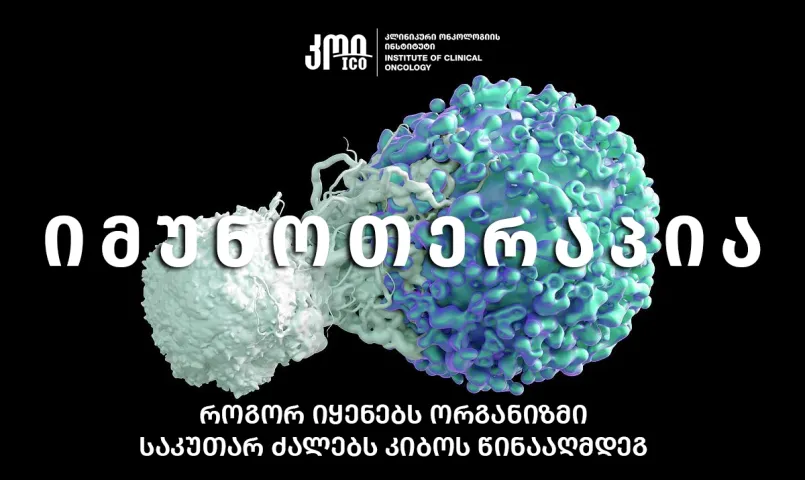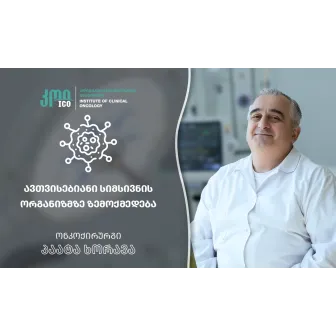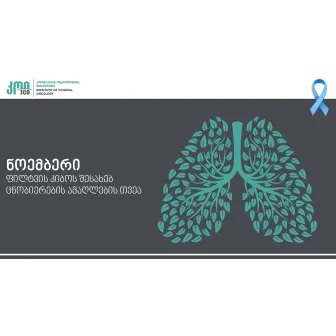Immunity is the ability of the human body to recognize and fight both pathogenic microorganisms - bacteria, viruses, fungi, and pathologically growing cancer cells. A tumor cell often tries to hide from the body's immune system or suppress its fighting ability, thus creating a favorable environment for reproduction. Immunotherapy is a new but very effective method in oncology, which aims to strengthen the body's immune system to fight the disease.
How does immunotherapy stimulate the immune system?
The goal of immunotherapy is to enhance the immune response against the tumor, which is achieved by using immunotherapeutic agents with different action mechanisms:
- Checkpoint inhibitors: ე.გ. PD-1 inhibitors (Pembrolizumab, Nivolunab, Cemiplimab, Durvalumab) CTLA-4 inhibitors (Ipilimumab, Tremelimumab)
- Monoclonal antibodies: Monoclonal antibodies are characterized by a specific targeted target and minimal adverse side effects, therefore they are advantageous for use in the treatment of tumors and other non-neoplastic diseases. E.g.: Transtuzumab, Rituximab, Cetuximab.
- Cancer vaccines: There are preventive vaccines (HPV vaccines are used to prevent HPV-related cancers (such as cervical, vulvar, larynx, anal, and penile cancers), and the HBV vaccine is used to prevent liver cancer caused by the hepatitis B virus. There are also therapeutic vaccines, the effectiveness of which is being actively studied.
- Adoptive T cell therapy: It aims to use the body's own T cells to fight cancer more effectively. E.g., CAR-T therapy, which is actively used in hemoblastosis.
- Cytokine therapy: Implies the use of cytokines to stimulate the body's immune system, such as interleukins and interferons.
What is the difference between immunotherapy and chemotherapy?
- Mechanism of action:
- Chemotherapy: Chemotherapy aims to destroy cancer cells and affects all rapidly dividing cells, including healthy cells.
- Immunotherapy: By strengthening the immune system, immunotherapy helps the body fight cancer.
- Side effects:
- Chemotherapy often causes more severe side effects, which are caused by damage to healthy cells, developing side effects such as hair loss, nausea, fatigue, and others.
- Immunotherapy generally causes few symptoms, although in some cases the immune system may damage its own healthy cells, contributing to the development of autoimmune diseases.
- Area of operation:
- Chemotherapy is effective against many types of tumors
- Immunotherapy is effective against some types of cancer
Which types of tumors does it work most effectively on?
Immunotherapy is most effective against the following types of tumors:
- Melanoma: One of the types of skin cancer that responds well to immunotherapy, especially checkpoint inhibitors.
- Non-small cell lung cancer: This type of tumor often has high PD-L1 expression, which makes immunotherapy effective.
- Bladder cancer: especially urothelial carcinoma, where treatment with PD-1/PD-L1 inhibitors is effective.
- Head and neck squamous cell carcinoma: especially HPV-negative types of tumors.
- Hodgkin lymphoma: Immunotherapy is especially effective when the disease has relapsed or is resistant to chemotherapy.
- Views:1219

















